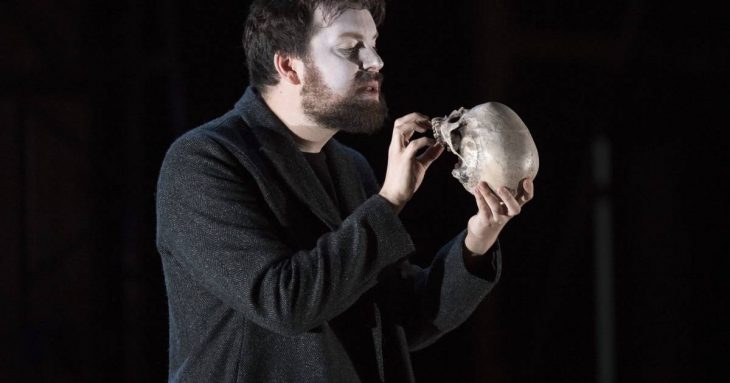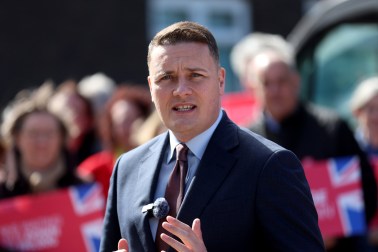Hamlet
Theatre Royal, Norwich, and touring until 1 December
I had mixed feelings about Brett Dean’s Hamlet as I went into the Theatre Royal in Norwich and mixed feelings when I came out of it: unfavourable, largely, on the way in and favourable, largely, on the way out. I am still left wondering why a composer would want to set this amazing, flawed and most memorable of tragedies to music, but more than one hundred have, so presumably they must feel they can add something, or alter something, or even improve it in some way.
The librettist Matthew Jocelyn, working closely with the composer at every stage, has bitten the bullet by only using Shakespeare’s text, though he has resorted to unusual versions of it in places, and has of course only excerpted passages from it, feeling free to re-allot lines and to juggle their order. Sometimes he has fallen too much in love with an especially memorable line or phrase: ‘The readiness is all’ is said not only by Hamlet just before the duel, but much earlier in the opera too, thereby lessening its heartbreaking quality when it occurs the second time. But given that Jocelyn has attempted the impossible, it is amazing how successful he and the composer have been.
This long-ish opera is almost wholly gripping, though Act I (it’s divided into two unequal parts) seemed a little over-extended, while Act II seemed perfectly proportioned. Dean doesn’t, so far as I could tell, have a recognisably personal idiom, but I haven’t heard any of his previous work, not even his earlier opera Bliss, so it may be that I just found it elusive. It sounds distinctly second half of the twentieth century, with a battery of instruments given more to making gestures than to creating lines; and no-one sings a memorable line, not even Gertrude in her nonetheless very moving ‘There is a willow grows aslant a brook’ at the beginning of Act II. The role was taken with great dignity by Louise Winter, and the opera is less fierce in its treatment of her than the play – nothing about ‘honeying and making love over the nasty sty.’
Claudius, too, is a less unsympathetic figure than we are used to, and William Dazeley’s interpretation was similarly mild. The outstanding performance of all, among many remarkable ones, came from the Polonius of Jeffrey Lloyd-Roberts, marvellously pompous and preening: for once I regretted his death. The Rosenkantz and Guildenstern, Rupert Enticknap and James Hall, were the two performers who also played the roles at Glyndebourne: counter-tenors, mewing and preening, and only meeting their end when everyone else did – as the synopsis has it ‘Hamlet accepts the challenge. Many deaths ensue.’
I was expecting the Players to be especially well done, but somehow they weren’t; The Mousetrap fell flat, and they seemed a mere intrusion. Ophelia, a character whom I find for whatever reason a trial, was made as moving as she can be by Jennifer France, with her part drastically shortened to her and the opera’s advantage. Hamlet: David Butt Philip has had golden opinions, but to me he was less mysterious than ill-defined, putting on his antic disposition from the start, mooching around in his black greatcoat, morose rather than upset, certainly not ‘the most adorable of princes’ as pre-Wilson Knight critics often said. Philip has a fine voice, though he isn’t challenged by the role to use it a great deal, and so the opera seemed less centred on him than perhaps it was meant to. The general level of the performance, both vocally and instrumentally, under Duncan Ward, was excellent, and all told I had a far more interesting evening than I had expected.






Comments